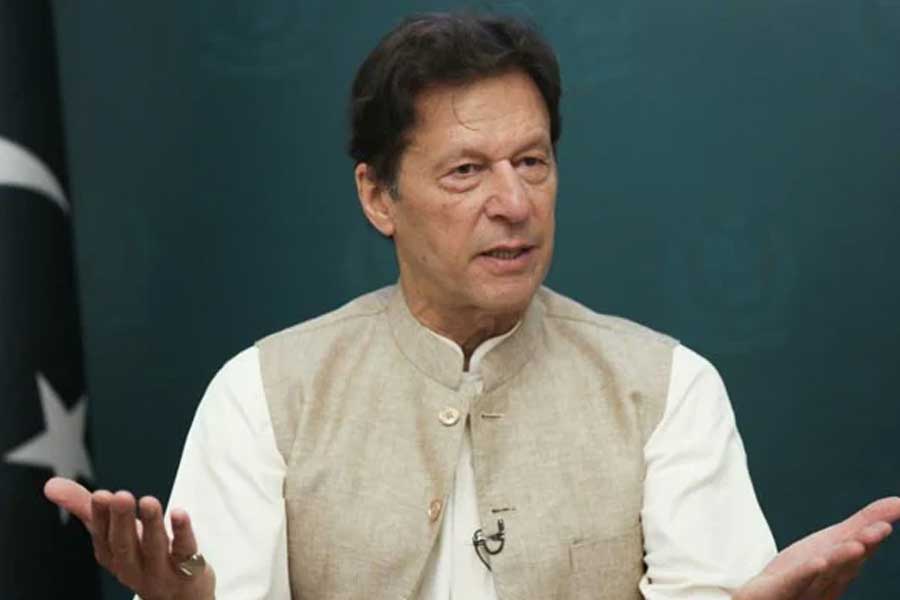The year, 2024, saw elections in several countries, including Pakistan. We have seen political chaos like never before since a successful vote of no-confidence ousted the then prime minister, Imran Khan, in April 2022. About a year later, there was the May 9 incident that led to a massive crackdown against Khan’s party, the Pakistan Tehreek-e-Insaf. His party went into the February 8 polls in 2024 without its iconic bat symbol. Despite the crackdown and the lack of an election symbol, PTI won the most number of seats in the Pakistan National Assembly and even formed a provincial government in Khyber Pakhtunkhwa. It also alleged that there was massive rigging and the PTI’s mandate was “stolen”.
A coalition government was formed at the Centre with Shehbaz Sharif as the prime minister. Both Sharif’s party, the Pakistan Muslim League-Nawaz, and the Bhuttos’ Pakistan People’s Party had offered the PTI to form a coalition government with the PPP. However, the PTI insisted that its mandate should be “returned”. Observers had pointed out then that this was a golden opportunity for the PTI to form a government as it would have released a lot of pressure on the party and its incarcerated leadership, which includes Khan. However, the PTI refused to form the government as it did not want to give any credence to the general elections.
The PTI thought that the election results would tell the Establishment and political parties that they cannot keep Khan behind bars as the people had spoken. Many had suggested that the PTI sit with rival political parties like the PML-N and the PPP to initiate a dialogue. But it insisted that it would only talk to the Establishment. The PTI tried to keep mounting pressure through rallies and protests but nothing worked in its favour despite the top court giving a verdict in its favour on the reserved seats case.
The Supreme Court’s verdict is yet to be implemented and the PTI has not been able to get its reserved seats. The judiciary, too, has been reined in through the 26th constitutional amendment that was recently passed. The contentious amendment changed the procedure for the appointment of the chief justice of Pakistan and also led to the formation of constitutional benches. These benches will hear political cases which many see as an attack on the independence of the judiciary and the bifurcation of the top court’s powers. Political experts said that this was done to keep the judiciary from giving relief to the PTI. Now that the Sharif-led government has secured a bailout from the International Monetary Fund leading to economic stability and the judiciary’s powers have been curtailed, it is not in any imminent danger despite being a weak coalition government.
Khan had given a “final call” for protest on November 24, which was led by his wife, Bushra Bibi, and the chief minister of Khyber Pakhtunkhwa, Ali Amin Khan Gandapur, This protest led to casualties on both sides — the ruling parties and the PTI. Both Bushra Bibi and Gandapur abandoned the rank and file on November 26 after storming the capital, leading to violent clashes. This was seen as a huge setback for the PTI. Khan then gave a call for civil disobedience but that has been deferred for now.
This, some say, is why the PTI may have finally agreed to talks with the government, even though there are still mixed signals from Khan’s party. The government does not trust PTI and vice-versa. However, there are senior leaders in the PML-N who believe that the PTI cannot just be ‘wished away’. They are of the opinion that a dialogue needs to be initiated between the two sides so that political space can be made for the Opposition. There is a similar opinion within the PTI leadership as the Establishment is unwilling to talk to it. Experts point out that what the PTI wants from the Establishment is also not going to happen at the moment — an intervention to get rid of this government and fresh elections. Talks with political parties are thus the only way forward. And we hope that the 2025 finally sees an end to the political chaos that we have witnessed in the last two years.
Mehmal Sarfraz is a journalist based in Lahore; mehmal.s@gmail.com










